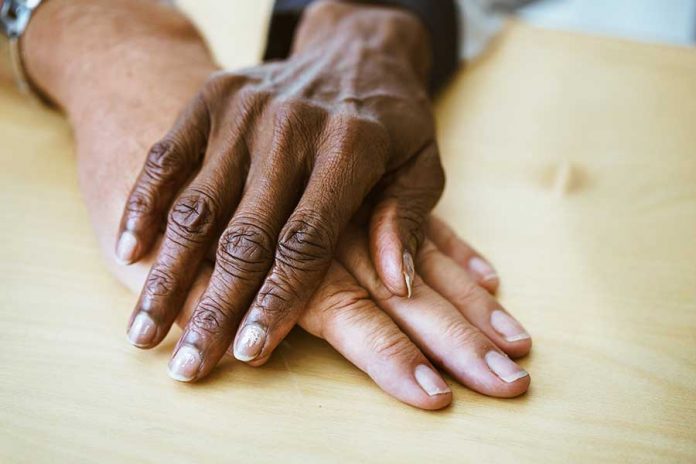As we age, our minds change. Some changes, such as temporarily forgetting the name of an acquaintance or wondering where you parked the car, occur with normal aging. Others, however, such as difficulty having a simple conversation or concluding that the lost car was stolen, can be symptoms of dementia.
Dementia is the general term for a decline in mental ability severe enough to affect normal daily activities. Loss of memory and other thinking skills may occur. Dementia may be the result of a stroke, Parkinson’s disease or other ailments.
Only a physician (namely a neurologist) can diagnose dementia. There are warning signs to look for: misplacing things and being unable to find them; losing interest in hobbies or social activities; getting lost driving to a familiar location.
Sixty-80 percent of dementia cases result from Alzheimer’s disease. Alzheimer’s cannot be prevented or cured. When someone is diagnosed, several categories of prescription medication may help delay or prevent worsening symptoms for a limited time.
One in eight Americans 65 and over has Alzheimer’s, which is the sixth-leading cause of death in the United States. The other five causes are decreasing due to medical advances. Alzheimer’s, however, is increasing as the Baby Boomer generation ages. Significantly, it occurs more frequently, but is diagnosed less often, among African-Americans and Hispanics.
What can be done for dementia sufferers, including those with Alzheimer’s? Where can you find information on these conditions? Who cares for LGBT seniors with Alzheimer’s? Who cares for the caregiver?
Here is what you can do
Learn about dementia and Alzheimer’s. In early stages, the sufferer benefits from engagement in mental-stimulation activities and in social engagement. Anxiety and depression, which often accompany increasing dementia, can be controlled. The Alzheimer’s Association provides a great deal of useful information. Visit www.alz.org or call the hotline at 800-272-3900 for more information.
Organize the care team. As Alzheimer’s progresses, a dedicated caregiver is essential. An estimated 800,000 individuals with Alzheimer’s (more than one in seven) live alone. Up to half of these people have no caregiver and, thus, are exposed to high risks such as poor self-care, malnutrition, falls and wandering from home.
LGBT seniors often lack adequate support. Friends and members of families of choice often provide the care that is needed. However, these caregivers are usually also aging and face ailments and challenges of their own. Many LGBT older adults are estranged from biological families and most do not have children to care for them. Planning ahead for support and building a team is very important under these circumstances.
Find resources and support for the caregivers. Caring for dementia patients is no easy task. Most of those who suffer from Alzheimer’s also have one or more additional serious medical conditions. In 2011, 15.2 million family members and friends provided 17.4 billion hours of care to those with Alzheimer’s and other dementias.
Dealing with the medical and care issues is stressful, grueling work and emotionally taxing for all involved. For LGBT people, an additional layer of stress exists due to fear of discrimination and lack of cultural sensitivity on the part of service providers.
How can LGBT patients and caregivers feel comfortable using medical and social-service agencies? In the Delaware Valley, several organizations provide training to agencies to create safe and welcoming environments for LGBT older adults. You can find out more about these training services by calling the LGBT Elder Initiative at 267-546-3448.
For caregivers who need immediate help, the Alzheimer’s Association Delaware Valley Chapter provides a 24-hour hotline at 800-272-3900. Help is also available at www.alz.org/desjsepa.
The Philadelphia Corporation for Aging website, www.pacares.org, provides links to social services, respite care, support groups and educational resources. You can also call PCA at 215-765-9040 or toll-free at 888-482-9060 outside of Philadelphia.
The Center for Advocacy for the Rights and Interests of the Elderly has a hotline at 215-545-5728 or 800-356-3606. CARIE also sponsors CAREGIVER GPS, an online self-help tool for caregivers at www.caregivergps.org. The GPS gives caregivers the ability to access the information or resources they need at any time.
More information and resources are available. The medical, psychosocial and caregiving issues surrounding mental wellness as we age will be addressed at the LGBTEI’s free Conversation, “The Aging Mind 101,” from noon-2 p.m. April 20 at The Church of St. Luke and The Epiphany, 330 S. 13th St.
For details, contact the LGBTEI at [email protected] or call 267-546-3448.
Joel Sartorius is a member of the LGBT Elder Initiative. The LGBTEI fosters and advocates for services and resources that are competent, culturally sensitive, inclusive and responsive to the needs of LGBT older adults. To comment on this article, suggest topics for future articles or for more information, visit www.lgbtei.org or call 267-546-3448 and watch for “Gettin’ On” each month in PGN.

